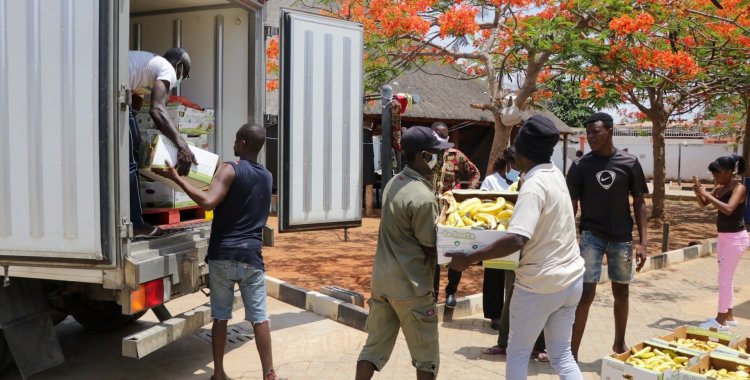"Obviously, as a company in need of exclusively imported production factors and with a high number of expatriates, the sharp and abrupt devaluation of the kwanza has a very negative impact on Novagrolider's activity", said the financial director (CFO) of this group to Lusa, one of the largest agro-industrial projects in Angola, employing 4000 people.
For António Nogueira, the situation is reflected in the freezing of investments in progress and a possible reduction in the number of employees, as well as the use of its own currencies, since Novagrolider, being an export company – is the largest banana producer in Angola and exports to several countries including Portugal – manages to generate foreign exchange.
The official also underlines that these factors influence the sale prices of products and fears that the drag of this scenario will worsen poverty and unemployment.
"The non-inflection of the current state, whether in the availability or in the price of currencies, will cause a drop in investment by national economic agents with serious consequences in terms of employment and the prices of all products and consequent deterioration in the living conditions of the population in general", he stressed.
The executive chairman (CEO) of Refriango, one of the largest Angolan beverage companies, also said that the sudden devaluation of the Angolan currency "took everyone by surprise", forcing them to reassess strategies.
"We are currently in the adjustment phase, to understand the impacts of this more challenging economic scenario", Diogo Caldas told Lusa, adding that Refriango is evaluating different strategies to minimize the negative impacts and adapt to the new economic situation.
"We are trying to implement quick and effective measures to ensure financial continuity and sustainability," he said.
"We are facing many difficulties", agrees António Leal, general director of Score Distribuição, owner of the Deskontão supermarkets.
Among these, he highlighted the "significant impacts on the treasury level, resulting from the settlements of CDI [Import Documentary Credits, which act as payment guarantees] of goods already received and sold with very significant negative exchange differences", as well as the retraction of consumption, due to the significant increase in product prices.
As for the measures to face this scenario, "they are essentially containment, reducing imports and cutting costs", added António Leal.
BMI consultancy, from the Fitch Solutions group, this Monday revised downwards the growth forecast for Angola this year, anticipating a return to recession, essentially due to the devaluation of the kwanza and rising inflation.
"We forecast real GDP to contract by 0.7 percent in 2023, after expanding by 3.1 percent in 2022, which is a downward revision from our previous forecast of 1.8 percent" , reads a note sent to investors, to which Lusa had access.
In reviewing the prospects for the evolution of the Angolan economy, the analysts explain that "this review largely reflects the impact of the strong devaluation of the kwanza in June", and add that "the increase in inflation will impact on household consumption and business investment , which puts even more downward pressure on economic activity in the oil sector".
Meanwhile, the National Bank of Angola brought forward the meeting of the Monetary Policy Committee (CPM) to Friday, initially scheduled for 17 and 18 July, without revealing the reasons for the change, indicating that the analysis of the evolution of macroeconomic indicators and analysis of money and exchange markets.







